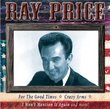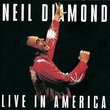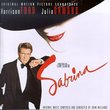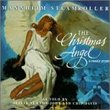| All Artists: Leon Price Title: Puccini Heroine Members Wishing: 0 Total Copies: 1 Label: RCA Release Date: 10/25/1990 Genre: Classical Styles: Opera & Classical Vocal, Historical Periods, Modern, 20th, & 21st Century Number of Discs: 1 SwapaCD Credits: 1 UPC: 078635599923 |
Search - Leon Price :: Puccini Heroine
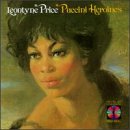 | Leon Price Puccini Heroine Genre: Classical
![header=[] body=[This CD is available to be requested as disc only.]](/images/attributes/disc.png?v=15401716) ![header=[] body=[This CD is available to be requested with the disc and back insert.]](/images/attributes/disc_back.png?v=15401716) ![header=[] body=[This CD is available to be requested with the disc and front insert.]](/images/attributes/disc_front.png?v=15401716) ![header=[] body=[This CD is available to be requested with the disc, front and back inserts.]](/images/attributes/disc_front_back.png?v=15401716) |
Larger Image |
CD DetailsSimilarly Requested CDs
|
CD ReviewsPrice is Perfect 02/03/2001 (5 out of 5 stars) "This is an essential recording for all Puccini fans as well as fans of Leontyne Price. Her "Donde Lieta Usci," from La Boheme is magnificant. As well as her "Un Bel Di" Her portrayal of Butterfly is like no other. Even her "O Mio Babbino Caro," is sheer perfection. While it is usually performed by a lighter voice it is still positively perffection." Voice from heaven pspa | Boston, MA USA | 02/26/2001 (5 out of 5 stars) "The rich glorious voice of Leontyne Price is unique (Jessye Norman maybe comes the closest), and in Puccini she is totally in her element. Surely along with Callas Tebaldi and Freni she is one of the greatest ever interepreters of Puccini, and one only wishes the quality of the recordings (typical RCA for this era) were a little better or that someone could find a way to remaster them. That said, the radiant performances are so magical that any technical deficiencies must be overlooked." "O Paradiso!": LEONTYNE PRICE's Exquisite PUCCINI Recital Donizetti's Kid | NYC, NY United States | 08/12/2006 (5 out of 5 stars) "Diva assoluta American soprano LEONTYNE PRICE has enjoyed a long association and identification with the veristic and intensely passionate music of Verdi's heir, GIACOMO PUCCINI. In the recording studio Ms. Price was a supreme interpreter, able to limn his softest phrases with limpid tone (rivalled only by Caballe), ride over the heaviest of his orchestrations with a vocal amplitude given to few others (Callas,Tebaldi, Nilsson,& Freni), and not simply soar with ease to the uppermost regions of his music but sustain it also - singular to her alone!! Onstage Ms. Price performed Puccini's heroines successfully if infrequently (Minnie in FANICULLA ultimately proving to be uncongenial for her), with treasured outings as Liu (TURANDOT), Floria (TOSCA), Giorgetta (IL TABARRO), Manon (MANON LESCAUT), and Cio-Cio San (MADAMA BUTTERFLY), the Puccini role she sang onstage the most. In this recital, the great soprano sings arias not only from those operas but also includes music from LA RONDINE, EDGAR, LE VILLI, LA BOHEME, and GIANNI SCHICCI (IL TRITTICO), and a MADAMA BUTTERFLY duet with tenor Placido Domingo. WIthout question this is heavenly singing. Leontyne Price"s voice in 1972 (the year of this recording) had matured and thus displayed a darker, richer tonal panapoly. The results yielded a stronger middle, velvety in texture, and imbued with a throbbing, sensual warmth. Her lower voice, now breathier and at times, opaque nonetheless retained its unique timbre, and, as throughout her career, is deployed with dramatic relevance and impact. The soprano's upper voice -one of the true glories of Opera to this day- retains some of the liquid vibrato of her earlier career, but is largely replaced by a creamy, rounder, voluminous sound that has more thrust in dramatic moments, and yet can spin ethereal pianos, and still float soft high-lying phrases with the utmost in ease. The soprano's voice retains its appealing femininity, but is more womanly and knowing than before. Those attributes, wedded to her innate artistry produce one of the finest Puccini recitals on record today.
The BOHEME arias (Mimi) are delivered with a direct simplicity that is less characterful than some, but refreshingly uncloying either. Ms. Price builds to a glowing climax in both pieces, and we feel the bloom of love-discovered, then the anguish of love- defeated potently. She sings "Musetta's Waltz" without the overt "sexiness" and/or archness that usually makes this aria so mundane, but instead treats it as the outpourings of a genuinely confident, assured woman who knows her charms and is happy to vocally display them. The EDGAR aria is understandably rarely performed, with its wide-ranging tessitura and odd melodious flight. Here, Ms. Price sings passionately, with full-throated, ringing tone that gleams on top, but less fluidity in the lower regions. The RONDINE aria included in this collection is not the justly-famed Price specialty "Chi bel sogno", but a lilting waltz, sung wistfully with delicious spin and tonal beauty by the soprano. TOSCA's "Vissi D'arte", another Price gem from an opera she recorded twice (the aria numerous times throughout her career) is sung with a weightier, more dramatic approach than before, yet still replete with the trademark diminuendo Price fans wait for. The tessitura for MANON LESCAUT's music is considerably lower than most of his other output. Ms. Price performs the first aria with ease (she often sang it as an encore in recitals), more generalized than elsewhere in this recital, but lushly sung. However, "Sola perduta abbandonata" displays the diva's artistry as well as vocal prowess. She uses her full range to capture the desolation, terror, and despair of the hapless Manon, resulting in an intensely stirring portrayal that is indelible for this listener. The LE VILLI selection, also rarely performed, is from Puccini's first opera and is not particularly distinctive music. The soprano's approach is primarily vocal, and lushly sung. MADAMA BUTTERFLY's arias became classics in Ms. Price's career - her complete recording of this opera remains one of her finest studio operatic performances. "Un bel di vedremo" is sung here as a powerful declaration of faith, with plush vocalism aligned to the the heartbreaking narrative of the geisha. Ms. Price is joined by her most frequent tenor partner of the 70's, the great Spanish tenor Placido Domingo, for a stellar performance of the Act I duet "Bimba, bimba, non piangere" which finds both artists blending together in customary fashion. The tenor captures the youthful ardor of Pinkerton, and sings with intensity, anchored by the darkly rich, burnished sound that made him famous the world-over. Ms. Price's singing is riper here, missing the vulnerability and naivete of her earlier wondrous incantation. However, her voice is ever attenuated to the words, and her vocalism is plush throughout it. Leontyne Price deservedly had the honor of opening the MET season in 1962 - the first "Negro" artist to do so - and sang the role of Minnie, THE GIRL OF THE GOLDEN WEST. The role of Minnie has been referred to as "the Italian Brunhilde" with its reliance on a sturdy middle voice, and usually the property of dramatic sopranos (Kirsten and Steber excepted) - which Ms. Price was not. Nonetheless, the reviews after her opening were ecstatic garnering her the appellation "the Stradivarius of Singers" from the New York Times. However, the diva had been singing non-stop for the past (3) three years on the greatest stages of the world - Vienna/La Scala/Covent Garden/ Verona/San Francisco/Chicago and her glorious MET debut with (8) eight roles in that first season!! She also endured a potential Musician's strike which threatened the opening, and sang Beethoven's difficult "Abscheulicher" (FIDELIO) in between FANICULLA performances. Perhaps unsurprisingly, the diva lost her voice during the dramatic Act II "Card scene", and bravely declaimed her lines until the Act's end. Quite obviously, after some needed rest, Ms. Price regained her spectacular voice, and as demonstrated here, her ability to sing Minnie's fiendish music - capped by a stunning High C to punctuate it. GIANNI SCHICCI is perhaps best known for the aria "O mio babbino caro", a fixture for sopranos of every voice type in concerts. Like "Musetta's Waltz", this music seem to inspire banality and superficiality from most singers. Ms. Price sings the aria with glowing simplicity, tonally glorious with shimmery pianissimi in the upper voice to rival anyone in memory. To end this recital, RCA inserted (like the Butterfly duet) a previously recorded excerpt from another Price recording - PRIMA DONNA Volume 4. Ms. Price sings the role of the icy Princess Turandot in Puccini's last opera TURANDOT here with great success. One of opera's most demanding soprano arias - "In questa reggia" -usually stentorian in nature, is sung more lyrically by Ms, Price, whose overall treatment is more straightforward than most. Nevertheless, she's ultimately successful, capturing the extreme contempt that the implacable Turandot holds for men, and is able to proclaim her challenge with requisite power at the aria's climax, besting her Calaf (tenor Daniele Barioni) in their long-held high C at the aria's finale. Maestro Edward Downes conducts sensitively for Ms. Price throughout (he was one of her better conductors in her studio recital series), and the New Philharmonia Orchestra follows his guidance expertly. This compilation should be in the collection of any opera-lover, especially those who cherish the music of PUCCINI, and neophytes unfamiliar with his output and/or the splendor of LEONTYNE PRICE!! Get this one now." |

 Track Listings (14) - Disc #1
Track Listings (14) - Disc #1